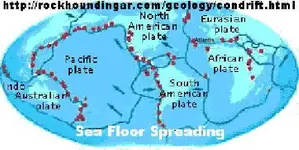Highmountain
Hero Member
Real de Tayopa said:OHIO : william the conqueror/finder you posted --->'
For it to be Plato's Atlantis, it must be
1) 9,000 Years old or older
2) Exist beyond the pillars of hercules and on the ocean he refers to
3) Be reasonably large enough to be bigger than Plato's "Asian and Libia"
4) Be destroyed in an upheaval in a single night and a day such that a large portion of it "sinks below the waves"
5) Support a civilization at least remotely similar to Plato's, obviously he couldn't get all the details right secondhand, but they at least need to be at the "lavish temple and harbor" stage of civilization
6) If it doesn't match any of these criterion, a good reason needs to be proposed why this one fact is "wrong" and the rest is "right"...it's no good arbitrarily saying "He exaggerated that", while keeping the rest of the passage intact.
~~~~~~~~~~~~~~~
My Atlantis does that and more.
Hint, an enormous, collapsed, dual ring, caldera, sitting on or near a major bearing / contact point of four Plates , an extremely unstable area. ..©@
Secondary thingie -->
http://nisee.berkeley.edu/lisbon/
Don Jose de La Mancha
Interesting link. Lots to think about there beyond Atlantis issues.
I'd agree that if Atlantis happened to exist once that's a pretty good place for it to have been. Assuming it existed you might well have located it.
Seems to me the deeper issue lies in precisely where the evidence is that it did exist, and whether the default position is that it did, unless someone proves otherwise, or that it didn't, unless someone can provide more solid evidence than Plato and Heroditus. Fact is that historians and pretty much everyone else never considered Plato to be a source of trusty historical data. That doesn't mean he didn't provide some, but it means he doesn't represent a solid foundation for as a convincing argument in favor of Atlantis unless a person just happens to want to believe it.
Academic one-upsmanship isn't a valid approach for killing off Plato as a source, but academic one-downsmanship doesn't work much better. Condemning the condemnation of Plato because [those lousy #@!$%#@!] 'academics think thus-and-so' -therefore-the-opposite-must-be-true just doesn't create a good podium for announcing a discovery anyone's likely to believe.
There's data on the ocean floor, magnetometer, sonar, free-air anomalies. Lots of mapping available and if Atlantis is down there it will very likely show on the mapping in the form of anomalies. If a person wants to keep a death-grip on Plato and hang on without looking anywhere else for supporting evidence I've no objection to it, but I'd tend to suspect the person doing it was deliberately turning a blind eye to available evidence that mightn't support a pet thesis.
Just my thinking.
Jack
Edit: Something a person might want to consider aside from the sterling accuracy or lack of it in Plato [and I consider] the more favorable Heroditus, is all the countless places Atlantis doesn't show up, recieves not even honorable mention. It ain't as though there's a shortage of folk who were busily turning out mentions of important events in history all the way across the ancient world. But Atlantis legends and accounts just weren't riding high enough in the saddle for them to draw their moral equivalents of pens-to-paper to say anything suggesting they ever heard of it. Nobody. As a person who isn't yet convinced Atlantis ever existed that seems significant to me.
Significant enough so's I suspect I'll never be convinced it did unless somebody who believes it enough to provide sound evidence it existed somewhere specific and that there's still something where it was.
But my believing it or not yet believing it isn't important. I'm just one heck of a lot easier to convince than most people who lean to the academic approach to history. So long as mainstream acceptance isn't a concern it's all just discussion and thought provoking but meaningless but poignant dialogues.
Beating Plato and Heroditus to death probably hasn't made believers out of non-believers if that was the intent. Providing a creditable location of where it 'might have been' is a great beginning for establishing whether it was there, or wasn't. But stacking a place it might have been on top of Heroditus with Plato wiggling around down there at the bottom trying to keep it all from toppling over is a futile expenditure of energy that might be better spent trying to find something to give old Plato a hand.








